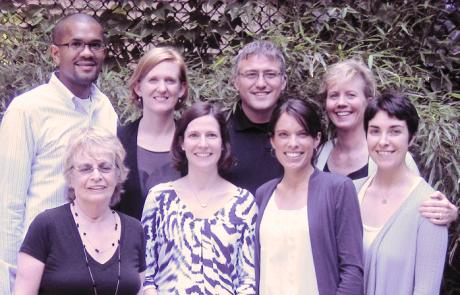
Published August 20, 2013, last updated on April 9, 2018
At the heart of all global health research are the communities and individuals who participate in the studies. Whether it be in a clinic, taking a survey or through simple observations, the stories and lives of individuals are used to inform science, policy and practice. Much of this research takes place outside of the United States by American researchers, and most of the conclusions are published in journals written in English.
How do these research conclusions ultimately reach the individuals, communities and policymakers in the country where the study was conducted?
DGHI and Sanford School of Public Policy faculty member Kathryn Whetten and her research colleagues in Russia recognize that publishing studies in US-based publications does little to advance policies in Russia where the studies take place. That’s why they are working together to tailor and translate their latest research findings into Russian for publication in Russian journals.
“We have to ask ourselves, are we reaching the right audience?” said Whetten. “We are not taught to think this way, to translate our research findings for international audiences. We can’t publish in English journals and think we are done when the people the studies can benefit are in other countries and speak other languages. If we want to serve the people where we work, we need to consider how best to deliver that information to them.”
She doesn’t stop at simply translating the paper from English to another language. Whetten and her colleagues are drafting another manuscript with results and recommendations specific to Russia.
Her Russian collaborator, Maia Rusakova, says this is the best way to reach high-level Russian leaders and policymakers, who don’t read English journals or keep up with US news media coverage.
St. Petersburg, Russia is one of three global sites that was part of their study in which the team surveyed HIV patients on how they cope with their illness and opportunities for improvement.
Recently, Whetten and Rusakova presented their findings at the Second Annual Bilateral Meeting on Collaborative Research Partnerships on the Prevention of Treatment of HIV/AIDS and Co-morbidities, in Moscow that was co-hosted by the NIH and Russian Foundation for Basic Research. The joint meeting included more than a dozen other NIH or RFBR-funding projects involving US and Russian collaborations.


